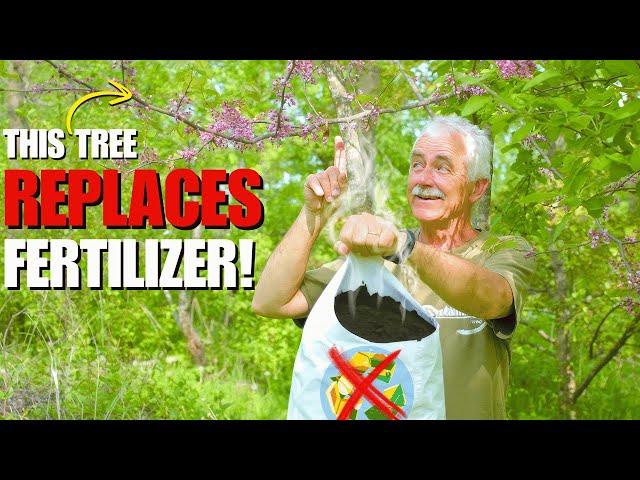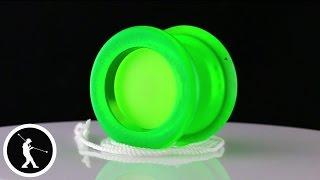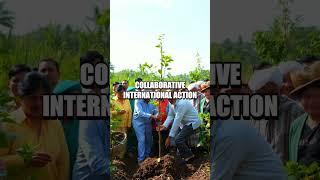
STOP WASTING TIME using fertilizers & plant THESE Nitrogen Fixing Trees instead!
Комментарии:

Crown Vetch is a nitrogen fixing ground cover that self-seeds.
Ответить
Growing nitrogen fixing plants to make fertilizer takes land, water, and time. Growing food also takes land, water, and time. If you try to grow all your own fertilizer, you can't grow as much food as if someone else supplies you fertilizer. The Haber process for synthetic nitrogen fertilizer raised the carrying capacity of the Earth, and is the reason why we can have 8 billion people without widespread famine.
Ответить
Nitrogen fixers are a myth???
Ответить
🍯
People tend to forget about
wild bees 🌸🐝 we like prune the apple trees later
Just to give them a bit extra joy

What growing zone are you in? I’m in a 4a zone in central Alberta and in the planning phase of an orchard for our farm
Do you have any resources for orchard planning in regards to how and where you like to locate nitrogen fixing plants?
Also wondering if you’ve ever experimented with planting clover in between your rows as opposed to the native grasses that grow

Kentucky Coffee Tree- You weren't kidding .....SLOW. Also very picky on soil. In the North , best to plant in full sun in slightly acid soil. Does not like cold spring weather in Clay soil. Also Deer protection a must because if they shred it in May, little regrowth that whole summer.
Hands down, Black Locust my favorite tree. Really builds the soil. I have an almost 2 acre woods of 100' big trees, that is around 100yrs old, and the young saplings of all species grow esp well in there. In good soil and good growing years may grow 6' to 8'. I had one unfertilized and about 6 yrs old grow about 8' and it bent over almost 90 degrees. The next year it straightened itself up to within 10 degrees. Another leader had grown out the other side so i trimmed it off.

I'm pretty excited. I'd forgotten about a batch of thornless honey locust seeds I'd scrounged from under a tree 2 years ago. Put them in a damp paper towel and so far 6 have sprouted!
High hopes now to end up with 20, 30 perhaps 40 baby trees. And as my mentor Stefan has taught me, plant them out in the Fall!

"Please post a list of the 200 best nitrogen trees and shrubs."
Ответить
Well, That’s disappointing. His very first recommendation is a “Honey Locust”…….
Honey Locust is a NON-nitrogen fixing legume. Makes me question everything else he says, seriously, Show me a single study saying it fixes nitrogen and how many lbs per acre.
Searching online I can see some academic sites claim it might fix nitrogen (which generally means a very low amount of nitrogen).

Я тебя нашёл - ура!!!
Ответить
The Chapter heading has "Carnation" instead of Caragana. Not interchangeable ;)
Ответить
Ii'm building some of your birdhouse designs. Iv'e seen them with the front opening instead of the sides. Doe it matter which way? I notice you plans open to the side for maintenance. (sorry this is probably posted on the birdhouse video).
Ответить
The Thornless honey locust will produce seeds that will be trees with Thorns, you will have to collect all the seeds.
Ответить
"what did plants do before the advent of synthetics?" -- it grew slower and steadier. . . which is not financially or social-sustainably viable.
Ответить
Honey locust, coffeetree, and redbud all do not develop root nodules. Legumes that dont form nodules are only about half as good of a nitrogen fixer as the ones that do ( e.g. black locust, persian silk mimosa, black alder)
Ответить
Lupin flower plants are nitrogen fixers too put a few of them at the base of trees.🫡
Ответить
I have heard that trees that produce their seeds in pods are Nitrogen fixers. Is there any truth to this rule of thumb?
Ответить
Thank you for teaching me about Nitrogen fixing trees.
Ответить
You didn't mention my favorite one for tropical regions: Inga edulis!
Ответить
I bought a new property in Vermont and all of the access roads through the wooded areas were/are overgrown with Black Birch saplings so thick they were impassable while the wooded areas are easy walking older Hemlock, White Pine and Oak woods. It made me think they are obviously some pioneer type tree, but I was unsure since the soil in these woodland access roads would easily support any tree growth.
While researching Alders for my area, I discovered they are in the birch family under a different genus. That reminded me of the Black Birch and I just discovered that they are suspected nitrogen fixers.
It’s quite enjoyable to see all these dots connecting.

Almost all your suggestions are different types of (Elaeagnaceae). If you like these plant family so much, maybe a video about the similarities and differences of all of them would be good
Ответить
Everything the invasives do, natives can do it too and do it 10 times better. If you live in temperate America, plant Vacciniums and if you live in hot America you can plant Faboideaes instead. No offence to permaculture folks but y'all need to step up the stewardship game and respect the ecological context of your land.
Ответить
Urine is approximately 11-1-2 NPK. Nitrogen is the easiest free thing to get! That much nitrogen can become problematic: you need some more P and K. I have started cooking homemade bone meal slurry with the Instant Pot and my 600 watt blender. Best tomatoes ever this year.
Ответить
Great video! And its regimen, not regime
Ответить
I hate Russian Olive Tree's, they spread everywhere, but my livestock loves them & they do come back, even if you cut them down to the ground. They will shred a horse in a heartbeat. Honey Locust is another one i despise. It spreads by roots & seed, i have the thorn variety. I didn't know about some of the other's, so that's good to know.
Ответить
I just plant clovers around my fruiting plants.
Ответить
Black Locust can quicly get out of hand here (8 feet in a few months!), so I just keep them pollarded and always have a lot of mulch, same with alders, which are continually planted by the surrounding forest. The locust thorns are not as much as a problem on the soft new growth. The goumis also grow strongly and even provide income from the great fruit. Always good to research general nitrogen fixing shrubs and trees, plant some and see what grows for you. Stefan got me started with this idea of planning space for them when installing my current permaculture orchard, but I was also able to stick other N fixing plants around the established trees with good effect. Many and continual Thanks, Stefan!
Ответить
How large an area does a tree or shrub impact with fixing nitrogen?
Ответить
I have watched so many of your videos and learned a ton from you. Thank you for all that you've taught me.
However, I wish you would please reconsider encouraging hundreds of thousands of people all over the globe to plant invasive species. These plants may be great on your farm, but when the birds eat the berries and spread them into wilderness that no one is maintaining, these plants are an ecological disaster. Where I live for instance, the autumn olives have taken over acres of my property. I've never seen a hole in the leaf of an Autumn Olive here. The insects here simply can't eat them. These types of plants are the perfect invaders because deer and rabbits won't eat them, birds love to spread their berries for miles around, and they can shade and outcompete every native plant because of their nitrogen fixing abilities. Outcompeting the native plants means no host plants for native insects. Fewer native insects means fewer native amphibians. The effects of these invasive nitrogen fixers displacing native plants ripples throughout the ecosystem, driving native plants and animals extinct.
There are so many native nitrogen fixers for every climate, please encourage your viewers to focus on planting nitrogen fixers that are native to their region. Or direct them towards male nitrogen fixers that don't produce seeds without a female companion. People may think they're doing a good thing by using less chemical fertilizers, when in fact they may be having devastating unintended consequences for wilderness areas near their farm.

Thank you for the wonderful video. I hope everyone is having a great day. Sheila Mink in New Mexico
Ответить
Tithonia Diversifolia rocks!!!
Ответить
Looking for Australian native nitrogen fixers
Ответить
Black alder is one of my favorites (cause it grows naturally here, and really quick too), but i'm pretty sure chestnut and sycamore would be awesome as well
Ответить
Is there a scientific study of how much nitrogen the different trees put in? I just see that a lot of the talk is vague
Ответить
Loving your educational videos! Learning lots. Off topic, but I'm curious what the wire we see among the trees is? For grapes, or training branches? Thanks for taking the time to share your knowledge!
Ответить
Hello, we live in Vermont, US and 5 years ago planted 3 types of apple trees, honey delicious, granny smith and Macintosh red. We have only gotten 2-3 apples per tree since a couple of years ago. We were considering fertilizing next spring plus some serious pruning. Any suggestions you can provide to increase production are very much appreciated. Regular viewer of your vlog, thanks for all the tips!
Ответить
Thank you for this great video! The treasure for me inside this video is to find out which are the Native species where I live, because they will be much easier for growing and get the results the soil needs; customized list for my place🤩🙏✨
Ответить
Thanks Stefan
What about using clovers ?

WOW! It is fun to watch this fellow. The passion almost overcomes the fanciful thinking. Stay safe.
Ответить
Build cheap soil test kit. What's less and what's high elements in the soil then balance with nutrition u want in the human body or animal body
Ответить
Most of leguminaceae family plants can fix atmospheric nitrogen in the soil. They can restore and reclaim the fertility of the soil.
Ответить
Terra preta -- adding biochar mixed with compost tea up to 25% of total soil volume, up to three meters deep -- augments nitrogen fixing, soil fertility, and water management. Give it a shot. Also, consider Miyawaki forest methods with these nitrogen-fixing trees and shrubs.
Ответить
question sir... what mushroom would you try in a orchard
Ответить
Autumn Olive may fix nitrogen, but it also has allelopathic chemicals. Don't plant it.
Ответить
What about potassium and phosphorus fixers?
Ответить





![[paper diy] SPRUNKI Gacha.Ver Dress Up Game book/Outfit/Paper Toy [paper diy] SPRUNKI Gacha.Ver Dress Up Game book/Outfit/Paper Toy](https://rtube.cc/img/upload/ODRCZmkweXJkTk4.jpg)



















